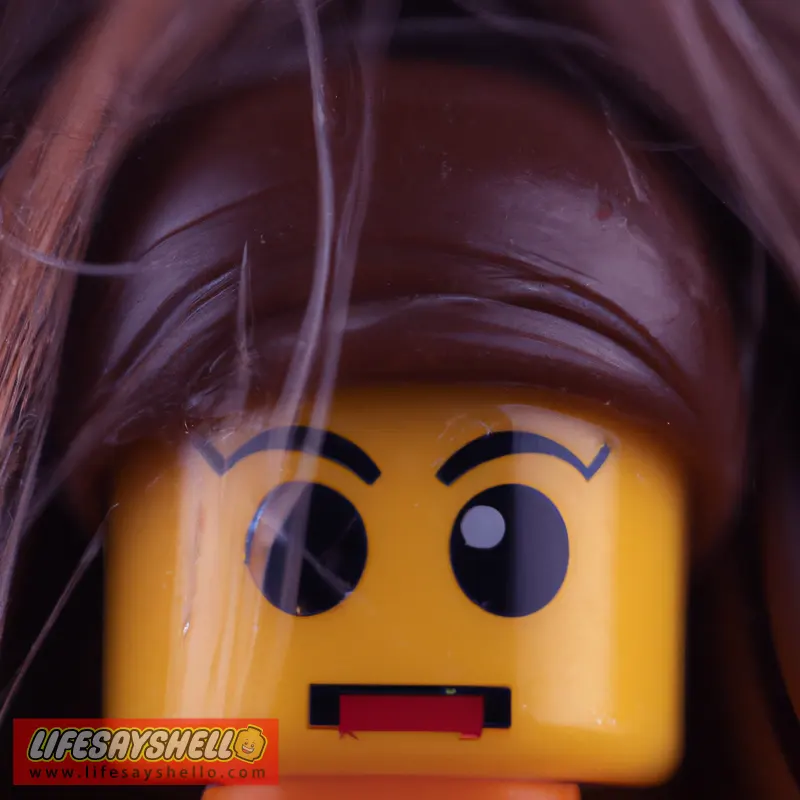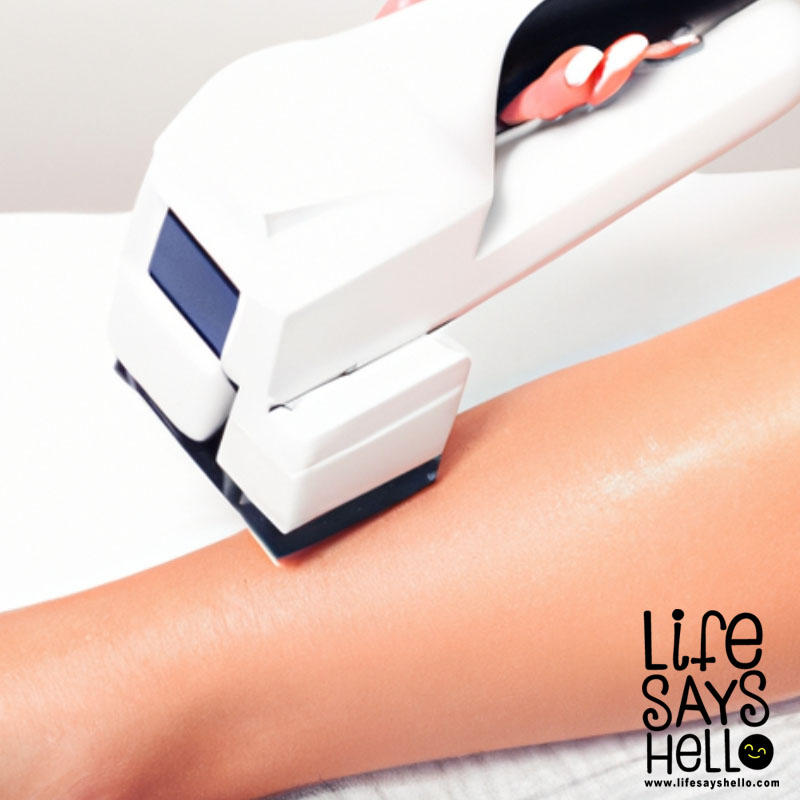Why Is My Hair Falling Out? The Top Causes of Hair Loss Explained

Have you noticed more hair than usual accumulating in your hairbrush or shower drain lately? Are you seeing more scalp than you used to when you look in the mirror? If so, you're not alone. Hair loss is an extremely common problem that affects both men and women. But what causes our hair to start falling out in the first place?
In this in-depth article, we'll explore the top causes of hair loss and what you can do to prevent, slow down, or even reverse it. Read on to get the facts on why we lose our hair and how to keep those precious strands from slipping away.
Genetics and Pattern Baldness
For many people, hair loss is simply in their genes. An estimated 60% of hair loss in women is hereditary, and around 80% of men with hair loss have a family history of male pattern baldness.
Male and female pattern baldness, also known as androgenetic alopecia, occurs when hair follicles are sensitive to normal levels of androgens like testosterone and DHT. The follicles shrink over time, producing thinner and finer strands of hair until they stop producing hair altogether.
Male pattern baldness usually begins with a receding hairline at the temples and thinning at the crown. Eventually the top of the head becomes completely bald. In contrast, women tend to maintain their frontal hairline but suffer diffuse thinning over the top and sides of the scalp.
While hereditary hair loss is very common, the good news is that there are effective treatment options available, including medications like minoxidil and finasteride. Hair transplants can also restore hair even in cases of severe balding.
Hormonal Changes
Hormones play a major role in the hair growth cycle. Any hormonal imbalance can disrupt the cycle and cause hair to shed or thin out. Some of the key hormonal culprits include:
Pregnancy - Many women experience hair loss in the months after giving birth due to dropping estrogen levels. This type of temporary hair loss is called telogen effluvium.
Menopause - As estrogen declines in menopause, many women notice their hair becoming finer, with more scalp showing. The risk of hair loss increases around menopause and continues into older age.
Thyroid disorders - Both hypothyroidism and hyperthyroidism can trigger hair loss. The thyroid gland regulates metabolism, and imbalances can affect hair growth.
Androgens - As mentioned, higher levels of androgens like testosterone and DHT are linked to pattern baldness. Certain medical conditions like PCOS can also increase androgen levels and hair loss risk.
If you suspect a hormonal imbalance, see your doctor to get tested. Treatment of the underlying hormonal issue can often stop or reverse related hair loss. Medications may also help counteract the hair loss effects of hormonal changes.
Medical Conditions Causing Hair Loss
In addition to thyroid disorders and hormonal imbalances, a number of other medical conditions can trigger hair loss:
Alopecia areata - This autoimmune disorder causes patchy bald spots. It can lead to complete hair loss on the scalp (alopecia totalis) or entire body (alopecia universalis).
Scalp infections - Infections like ringworm can invade hair follicles leading to brittle, breaking hair and patches of baldness.
Anemia - Certain nutritional deficiencies tied to low iron can contribute to hair loss.
Lupus - Hair loss is one of the symptoms of this autoimmune disease. Rashes and lesions on the scalp can also develop.
Diabetes - Uncontrolled blood sugar levels can impact many body systems including hair growth.
If an underlying health condition is causing your hair loss, treating it is key to stopping further loss and allowing healthy regrowth. Your doctor can help diagnose the issue and get you the proper treatment.
Medications That Can Cause Hair Loss
Many different types of medications are linked to hair loss as a side effect. Some of the most likely culprits include:
Acne medications - Drugs like Accutane used for severe acne can cause hair thinning and shedding.
Birth control pills - Some oral contraceptives contain progestin which can trigger hair loss for some women.
Blood thinners - Anticoagulant drugs like Coumadin can lead to hair loss.
Antidepressants - Older antidepressants like Prozac have hair loss as a possible side effect.
Chemotherapy - Powerful chemotherapy medications damage rapidly dividing cancer cells but can also affect hair follicles, leading to extensive hair loss.
If you suspect a new medication may be causing hair loss, talk to your doctor about alternatives. Switching to a different drug may stop the hair loss while still treating the underlying condition.
Extreme Stress Can Cause Hair Loss
Most people expect to shed some hair when under stress. However, severe or prolonged stress can actually shock hair follicles and cause dramatic hair loss.
There are a couple ways stress leads to hair loss:
Telogen effluvium - Significant stress pushes large numbers of hair follicles into the resting phase. Several months later, hairs shed all at once causing noticeable thinning and loss.
Trichotillomania - This stress or anxiety related disorder causes people to compulsively pull out their own hair. It results in patchy bald spots on the scalp or body.
To reduce stress related hair loss, focus on regular exercise, relaxation techniques, therapeutic hobbies, and talking to a mental health professional. Getting stress under control can stop further hair loss.
Traction Alopecia from Hairstyles
For many women, tight hairstyles that pull on the hair over long periods can cause traction alopecia. Hairstyles most likely to cause this problem include:
- Tight ponytails, buns, or braids
- Cornrows or pigtail braids
- Hair extensions or weaves
- Tight hair rollers or clips
The constant tension damages the hair follicles leading first to hair breakage and thinning. Over time the follicles shrink and stop producing hair. If detected early, changing hairstyles allows the hair to regrow. But permanent bald patches can develop if the follicles are damaged for too long.
Poor Nutrition and Hair Loss
Just like any other part of your body, your hair needs proper nutrition to stay healthy and strong. Deficiencies in certain vitamins, minerals, and other nutrients can starve hair follicles, disrupting growth and eventually causing loss.
Protein - Inadequate protein in the diet can limit hair growth since hair is made up largely of a protein called keratin.
Iron - Iron carries oxygen to hair follicles which need adequate blood flow. Low iron stores may lead to anemia and hair loss.
Zinc - This mineral is critical for healthy hair. Zinc deficiency can trigger hair thinning and shedding.
Biotin - Biotin forms the building blocks of hair keratin. Low levels may cause brittle, thinning hair.
Essential fatty acids - Omega-3 fats nourish the hair follicles and promote growth. They may help thicken hair.
Be sure to eat a balanced diet with lean proteins, fruits, vegetables, healthy fats, and key micronutrients. Take a daily multivitamin to help fill any nutritional gaps that could impact your hair.
How to Prevent Hair Loss
While some hair loss is inevitable, there are steps you can take to prevent and slow the loss process:
Eat a nutritious diet - As mentioned, key nutrients supply the building blocks for healthy hair. Focus on lean proteins, fruits, vegetables, healthy fats, iron, zinc, biotin, and omega-3s.
Take key supplements - A daily multivitamin can help fill nutritional gaps. Some other supplements believed to support hair growth include biotin, vitamin D, iron, zinc, and omega-3 fish oils.
Use gentle hair products - Avoid harsh chemical treatments, tight hairstyles, excessive heat styling, and overly vigorous brushing. Instead, use gentle shampoos, let hair air dry, and brush gently.
Manage stress - Chronic stress takes a toll on hair just like the rest of the body. Make stress relief a priority through exercise, relaxation techniques, talking to a counselor, or other self-care practices.
See your doctor - If you notice sudden increased shedding or patchy hair loss, see your doctor or dermatologist. Identifying and treating any underlying medical issues can stop further loss.
Medical Treatment Options for Hair Loss
If you've already begun showing signs of significant hair loss, don't panic. There are highly effective medical and surgical treatments that can stop hair loss and stimulate regrowth.
Minoxidil - Available over-the-counter, this topical medication slows hair loss for many people and stimulates regrowth of thicker hairs.
Finasteride - This prescription oral medication blocks DHT production to halt male pattern baldness. It also stimulates some new growth.
Low level laser therapy (LLLT) - These light energy devices may help regrow hair when used at home several times a week.
Microneedling - This in-office procedure uses tiny needles to stimulate blood flow and improve minoxidil absorption.
Hair transplants - Hair from the back of the scalp is redistributed to fill in balding areas. Transplants can restore even significant hair loss.
Talk to your dermatologist about which options are best for your specific type and cause of hair loss. Consistent use of these treatments can keep future hair loss at bay.
Coping with Hair Loss
Hair loss can take an emotional toll, especially for women. But there are ways to cope with the changes while also taking proactive steps to stop further loss and regrow hair:
Focus on the positives - Hair is just one part of your appearance. Remind yourself of all your other wonderful qualities.
Get creative with hairstyles - Styling tricks like face-framing layers can camouflage thinning hair. Headscarves, hats, and wigs can also minimize the appearance of hair loss.
Seek support - Friends, family, and support groups can remind you that you're not alone.
Reduce stress - Finding healthy stress outlets like therapy, exercise, meditation, or hobbies can minimize anxiety.
Take action - Seeing a doctor and using medications or supplements can stop further hair loss. Hair transplants are another longer term solution.
Embrace the change - If hair loss progresses to baldness, embrace your new look and rock it with confidence. Many people find baldness liberating.
Stay positive. With a little time and effort, hair loss can often be reversed or minimized significantly.
When to See a Doctor About Hair Loss
Don't write off hair loss as just a cosmetic problem. See your doctor or dermatologist if you notice:
- Sudden shedding of large amounts of hair
- Patchy bald areas on the scalp
- Scalp pain, itching, redness, burning or other irritation
- Hair falling out in clumps or easily pulling out
- New hair growth that is finer and thinner than usual
- Hair loss following major illness or childbirth
A medical evaluation can determine if an underlying health condition is causing your hair loss. The sooner it's diagnosed, the better your chances of stopping further loss and regrowing hair.
The Takeaway
Losing your hair, especially at a younger age, can be distressing. But you're not powerless against hair loss. Understanding the common causes allows you to take steps to prevent and treat it.
While genetics play a role, factors like hormones, health conditions, medications, diet, and stress are also major contributors. Getting to the root cause of your hair loss is key.
From medications like minoxidil to hair transplants and stress reduction, effective treatment options are available. Taking action while also focusing on self-care and a positive outlook can go a long way to coping with the emotional impact of hair loss.
So take heart - for most people hair loss is a manageable condition. With the right strategies, you can stop further loss and get back to enjoying your normal thick, healthy hair.




Comments